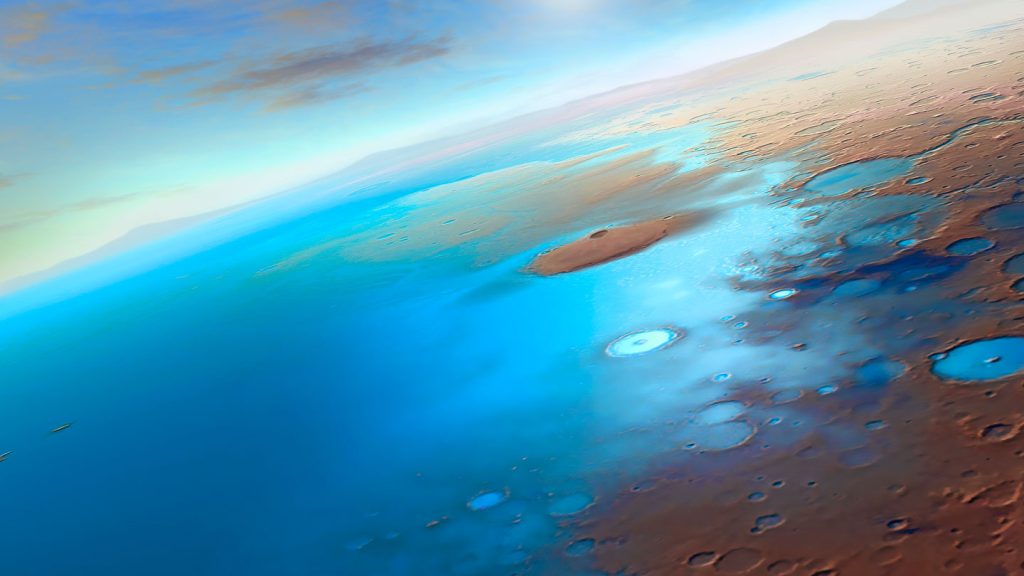In planetary formation, the amount of water a planet has plays a crucial role in determining its fate. A study by Keavin Moore and colleagues from McGill University suggests that there is an optimal amount of water needed for a planet to become Earth-like. Having three to eight times the amount of water in Earth’s oceans ensures that the planet does not dry out or become overly soggy. This balance is crucial for the planet to sustain life and maintain a stable environment.
Planets around small, dim stars are considered potential candidates for hosting life in the galaxy. However, these stars emit high-energy flares that can strip away a planet’s water within a few billion years after its formation. Moore and his team explored the possibility of planets hiding water in their interiors until their host stars become calmer with age. Through simulations, they found that planets could store water in their mantles, protecting it from the harsh stellar radiation and allowing them to retain water essential for life.
The team’s simulation of a planet’s lifespan involved starting with a hot, molten planet with some water dissolved in magma. As the planet cools, water evaporates and forms an atmosphere, some of which is lost to space. However, a cycle of dissolving water into the mantle and releasing it back into the atmosphere helps maintain the planet’s water balance. For an Earth-mass planet to sustain oceans and continents for about 5 billion years, it would need to start with three to eight times the water content of Earth’s oceans. Planets with up to 12 times Earth’s oceans could become watery worlds completely covered by oceans, potentially able to support life even without dry land surfaces.
These findings shed light on the importance of water in planetary evolution and the potential for planets to regulate their water content over time. Understanding the role of water in planet formation and stability is essential for assessing the habitability of planets and the likelihood of hosting life. Further research in this area could provide valuable insights into the conditions necessary for life to thrive on other worlds beyond our own.


